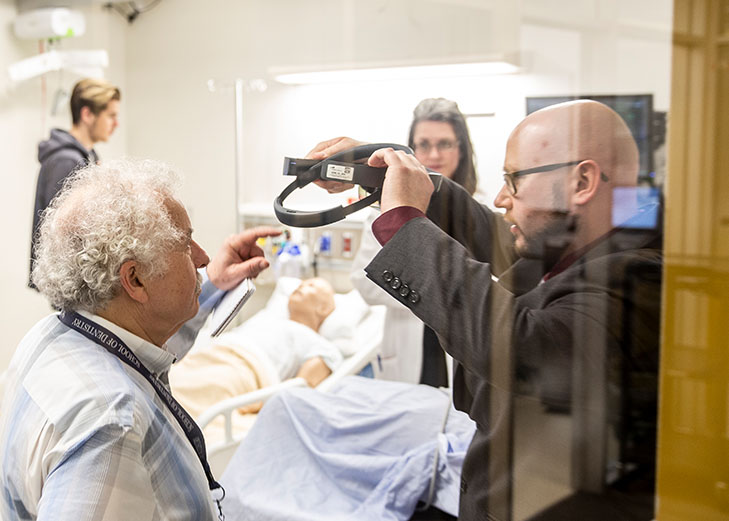About

About This Program
The University of Washington Master of Science in Healthcare Simulation Education degree program focuses on preparing leaders and practitioners who want to improve the future of patient care and medical training outcomes through simulation-based education and research.
Affiliations and Partnerships
The UW Master of Science in Healthcare Simulation Education is offered by the Division of Healthcare Simulation Science (HCSS), a unit of the UW Department of Surgery at the University of Washington School of Medicine.
Founded in 2020, HCSS is the first academic unit in the Pacific Northwest to combine the research and educational delivery expertise of two well-established simulation programs at the University of Washington: the WWAMI Institute for Simulation in Healthcare (WISH) and the Center for Research in Education and Simulation Technologies (CREST).
A self-sustaining, fee-based degree, the Master of Science in Healthcare Simulation Education program is administered in partnership with UW Continuum College, which extends the reach of the UW with a range of online and on-campus programs for working professionals and other learners of all ages.
Mission and Values
Students in the UW Master of Science in Healthcare Simulation Education will be part of an equitable and inclusive graduate-level degree program that closely aligns with industry standards. Our program adheres to these values:
- Innovation in education: You’ll receive multidisciplinary training and curriculum development skills to advance the field of healthcare simulation science education and research.
- Patient safety: You’ll learn to generate and implement training products to positively impact patient outcomes.
- Collaboration: You’ll be part of a diverse community of graduates, capable of understanding and implementing complex engineering and clinical needs.
We’re committed to providing a learning experience that helps to advance diversity, eliminate healthcare disparities and promote health equity.